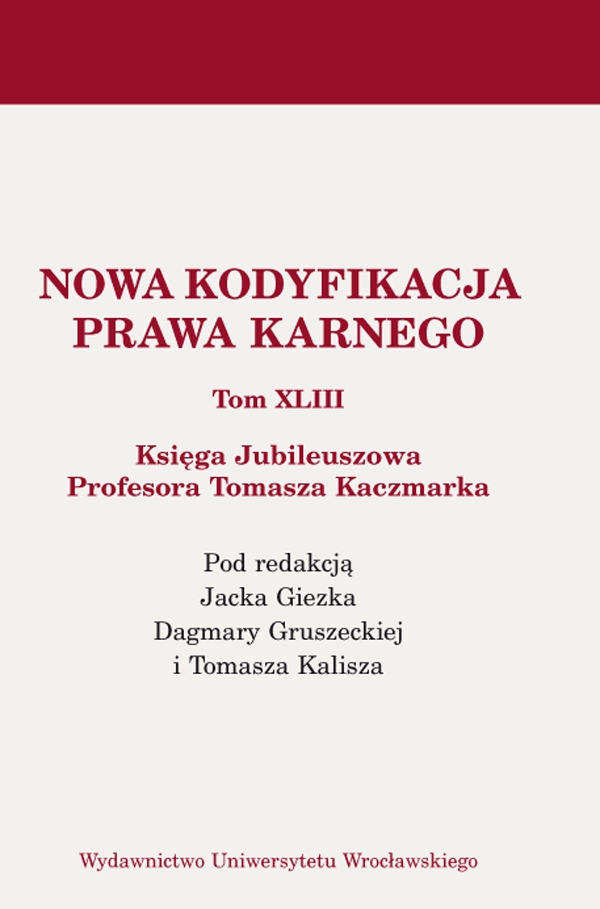

Artykuły

Objectives of enforcement of the penalty of imprisonment — a few reflections
Numerous dysfunctions of penitentiary isolation, identified in the course of more than 200 years of application of the penalty of imprisonment, demonstrate that prisons do not improve people and do not make them more pro-social than they had been before they started serving their sentences. The crisis of penal policy based on extensive use of the penalty of imprisonment makes it necessary to expand the catalog of penal measures that do not involve any restriction of liberty and to limit the extent of application of the penalty of imprisonment to only the most serious crimes that constitute a grave threat to society. The authors of the Polish Penal Code of 1997, following the ultima ratio principle in the case of the penalty of imprisonment in the case of petty crimes and crimes of medium gravity, provided an extensive range of possibilities in the selection of the penal-law responses to such crimes. As a result, the penalty of imprisonment should be restricted mostly to perpetrators of acts that are very harmful to society. Given the fact that their sentences are several or even over ten years long, the question about the objectives of enforcement of the penalty of imprisonment is still to be answered.